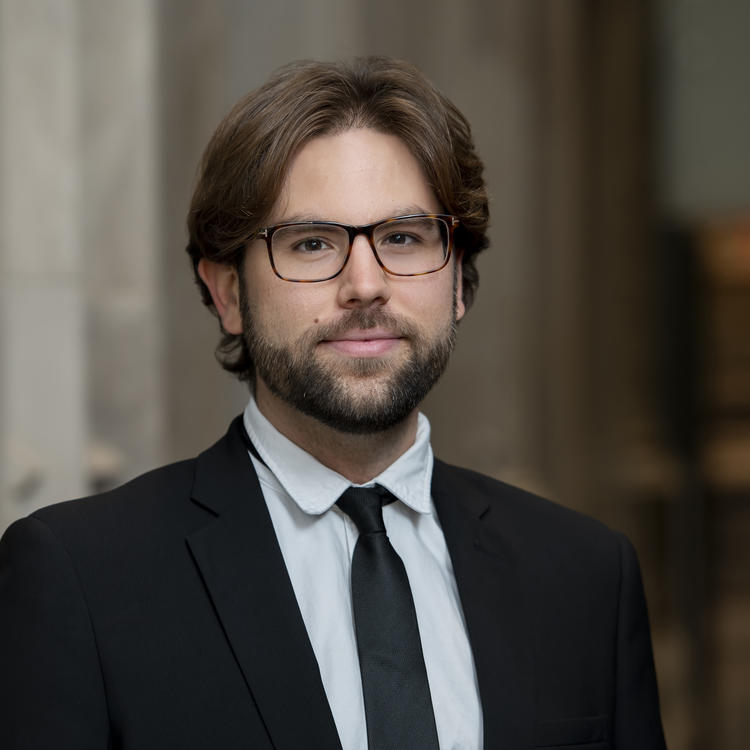Teaching deliberative democracy in the secondary classroom
(10 Hours CTLE, TBD 2025)
Stay tuned for application- subscribe to Amor Mundi for updates
-
What will I gain from the experience?The course is interactive and practical: it will provide teachers with model lesson plans for their classroom. You will learn the nuts and bolts of random selection and deliberation, and will join an alumni network to connect you with further resources as a teacher and citizen.
-
 Cost & LogisticsDates: TBD May 2025
Cost & LogisticsDates: TBD May 2025
The course is free and includes meals. The workshop will bring around 30 high school teachers to Barnard's Milstein Center for Teaching and Learning in Manhattan
Email [email protected] with any questions. -
 Who is teaching the course?
Who is teaching the course?Dimitri Courant is a Postdoctoral Research Associate and Fung Global Fellow at the Princeton Institute for International and Regional Studies (PIIRS), at Princeton University.
He received his Ph.D. in political science from the University of Lausanne and the University Paris 8. He is a democracy visiting fellow at the Ash Center, at Harvard Kennedy School. He holds two master’s degrees, in political science from Sciences Po Rennes, and in social sciences from the School for Advanced Studies in the Social Sciences. -
Deliberative processes and civic lotteries have helped address tough policy issues around the world: in Canada (electoral reform and public transportation planning), in Ireland (abortion and marriage equality). They are increasingly becoming permanent parts of government. But perhaps their biggest impact are on the everyday people who participate. For this reason they serve as excellent schools for democracy. Watch video testimony here.
-
A Deeper Dive
What makes this different from an opinion poll?
A CA, unlike a political poll, meets with the help of experts and trained facilitators for an extended period of time (at the very least several days) and can thus help de-escalate heated ideological divisions and help citizens see all sides of an issue. These settings are conducive to citizen learning about complex issues, and help reduce the impact of misinformation and depolarization.
The results from CAs and other lottery-based bodies have been positive. Decisions produced tend to include full nuances of the debate preceding them and often lead to novel solutions. Experience of political responsibility in CAs has been shown to awaken people’s civic sensibilities and collective intelligence: they begin to view issues from the perspective of a collective long-term interest, above their own short-term interest. This makes compromise possible, and allows for hard choices around trade-offs such as:
1. raising taxes
2. making decisions around policing/community safety
3. planning for mitigation/adaptation around climate change
What policy issues are well-suited for a citizens' assembly?
Iain Walker of the New Democracy Foundation (Australia), which has run dozens of assemblies, has stated that the best topics for CAs are those that pass the headline test: are participants 30 second opinions likely to change after sitting with the topic for 30 hours? Topics that are well-suited to CAs are thus those that involve thinking through tough trade-offs: including taxes, public safety/crime, and planning. Learn more here.
What are the core aspects of the Citizens' Assembly process?
Here are the three core aspects of any effective citizens' assembly:
I: Random Selection: the citizens are chosen by lottery.
II: Good Debate: the citizens hear and deliberate with experts, interest groups and witnesses on the issue.
III: Citizen Power: the citizens freely, honestly and sincerely discuss an issue that is (more or less) in their purview of power to decide on or make recommendations for
More Resources
In Canada, the organization MASS LBP has been offering Reference Panels as a service to help governments, public utilities and corporations make better decisions for over a decade. They also offer invaluable practical guides on the resources section of their website:
In the US, Healthy Democracy is based in Oregon and has pioneered the use of lottery-based deliberation around ballot initiatives.
The Sortition Foundation, with bases in the UK & Australia is a hub for knowledge about lottery based systems.
The OECD has published reports providing in-depth comparisons and an analysis of best-practices here.
In Europe, the Federation for Innovation in Democracy has led the charge in helping governments establish and institutionalized forms of deliberative democracy.
Participedia is a global network and crowdsourcing platform for researchers, policymakers and practitioners interested in public participation and democratic innovations
The blog Equality by Lot offers the most thorough ongoing round-up of discussion and information on lottery based democratic innovations activity around the world.



